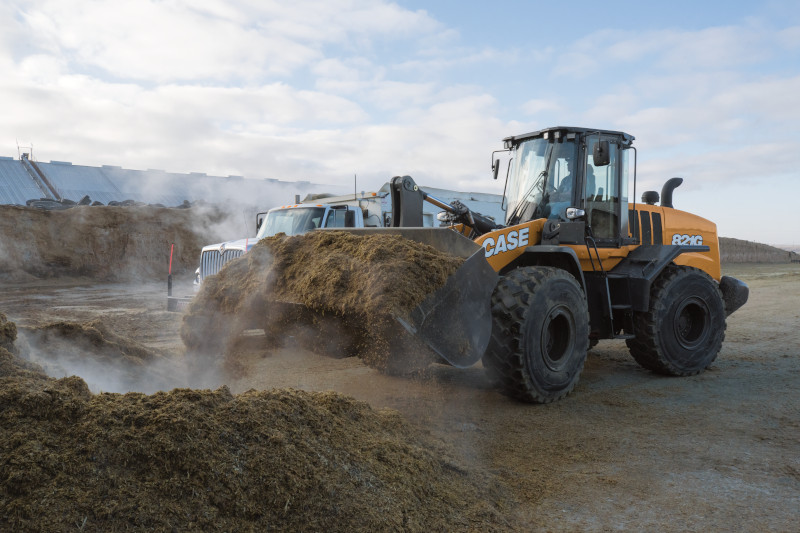
The Role of Artificial Intelligence in Modern Construction Equipment: Revolutionizing the Industry
Introduction
The construction industry is undergoing a significant transformation, driven by advancements in artificial intelligence (AI). As projects become increasingly complex, the demand for innovative technologies that enhance efficiency, safety, and sustainability has never been more crucial. AI-powered construction equipment is reshaping the industry, enabling predictive maintenance, automation, enhanced safety, and smarter decision-making. This blog explores the profound impact of AI on construction equipment and its role in shaping the future of construction.
Understanding Artificial Intelligence in Construction Equipment
Artificial Intelligence (AI) refers to the simulation of human intelligence in machines, allowing them to analyze data, make decisions, and automate processes. In construction, AI is leveraged through machine learning algorithms, computer vision, and the Internet of Things (IoT), all of which contribute to improved operational efficiency and cost savings. By integrating AI with IoT sensors, construction machinery can monitor performance, predict failures, and optimize usage, ultimately reducing downtime and maximizing productivity.
Key Benefits of AI in Modern Construction Equipment
Increased Efficiency and Productivity
AI-driven machinery enhances operational efficiency by analyzing real-time data and adjusting performance accordingly. Automated grading, excavation, and material handling streamline workflows, accelerating project completion times.
Cost Savings and Resource Optimization
Predictive analytics allow construction teams to forecast equipment needs, reducing unnecessary expenses and minimizing material waste. By optimizing the use of resources, AI contributes to better financial planning and project profitability.
Improved Decision-Making
AI’s ability to analyze vast datasets provides construction managers with actionable insights. From site conditions to equipment utilization patterns, AI helps make informed decisions that improve project outcomes and reduce risks.
Current Applications of AI in Construction Equipment
AI-Powered Predictive Maintenance
Traditional maintenance schedules can be inefficient and costly. AI enables real-time equipment monitoring, predicting potential failures before they occur. By addressing issues proactively, construction companies minimize repair costs and prevent unexpected downtime.
Automation and Robotics
AI-driven automation enhances precision in excavation, grading, and material transportation, reducing reliance on manual labor. Autonomous and semi-autonomous machinery improves efficiency while mitigating risks associated with human error.
Enhancing Safety on Job Sites
Construction sites are inherently hazardous, but AI-powered safety systems are mitigating risks. Features such as object recognition, collision avoidance, and AI-assisted operator training are making worksites safer.
- 360-degree AI-driven cameras detect potential hazards.
- Automated slowdown and shutdown mechanisms prevent accidents.
- AI-based simulations enhance operator training and decision-making.
AI in Fleet Management and Logistics
Managing large fleets of construction machinery is complex, but AI simplifies logistics by optimizing fuel efficiency, tracking equipment performance, and improving resource allocation. AI-powered fleet management tools help reduce idle time and improve overall project planning.
Challenges in Implementing AI in Construction Equipment
Despite its benefits, the adoption of AI in construction faces challenges.
- High Initial Investment: Implementing AI-driven equipment requires significant capital, making it a barrier for smaller firms.
- Workforce Training: Operators and managers must be trained to leverage AI technology effectively.
- Data Security Concerns: With increased connectivity comes the risk of cyber threats, making cybersecurity a top priority.
- Regulatory and Industry Standards: The lack of universal AI implementation guidelines in construction poses challenges in standardizing best practices.
The Future of AI in Construction Equipment
As AI continues to evolve, its role in construction equipment will expand. Future developments include:
- Fully autonomous construction machinery that requires minimal human intervention.
- Integration with Building Information Modeling (BIM) for smarter planning and execution.
- Sustainable AI-driven solutions to reduce emissions and optimize energy consumption.
Conclusion
Artificial intelligence is revolutionizing the construction industry, making machinery smarter, safer, and more efficient. Companies investing in AI-powered solutions, such as those developed by Hitachi Construction Machinery, are setting new industry standards and driving innovation. While challenges exist, the long-term benefits of AI in construction far outweigh the initial obstacles.
As AI continues to shape the industry, construction firms must embrace technological advancements to stay competitive. The future of construction is intelligent, data-driven, and automated—powered by AI.
Are you ready to integrate AI into your construction projects? Share your thoughts on how AI is transforming your worksite in the comments below!




